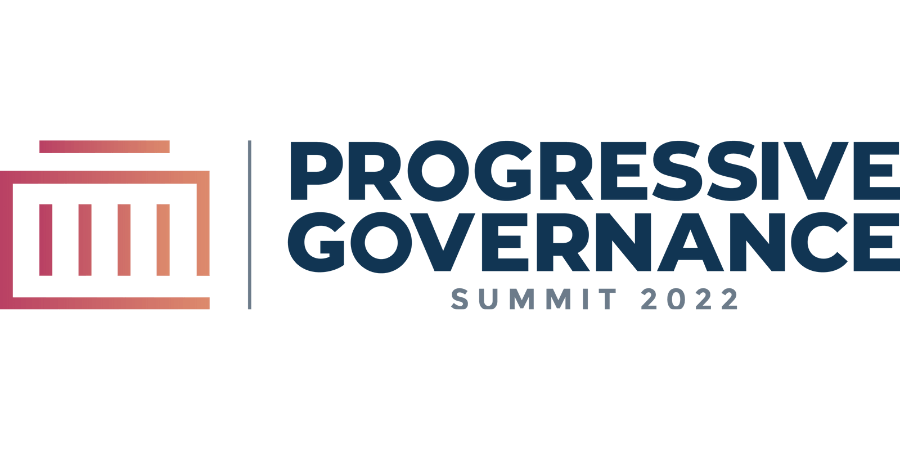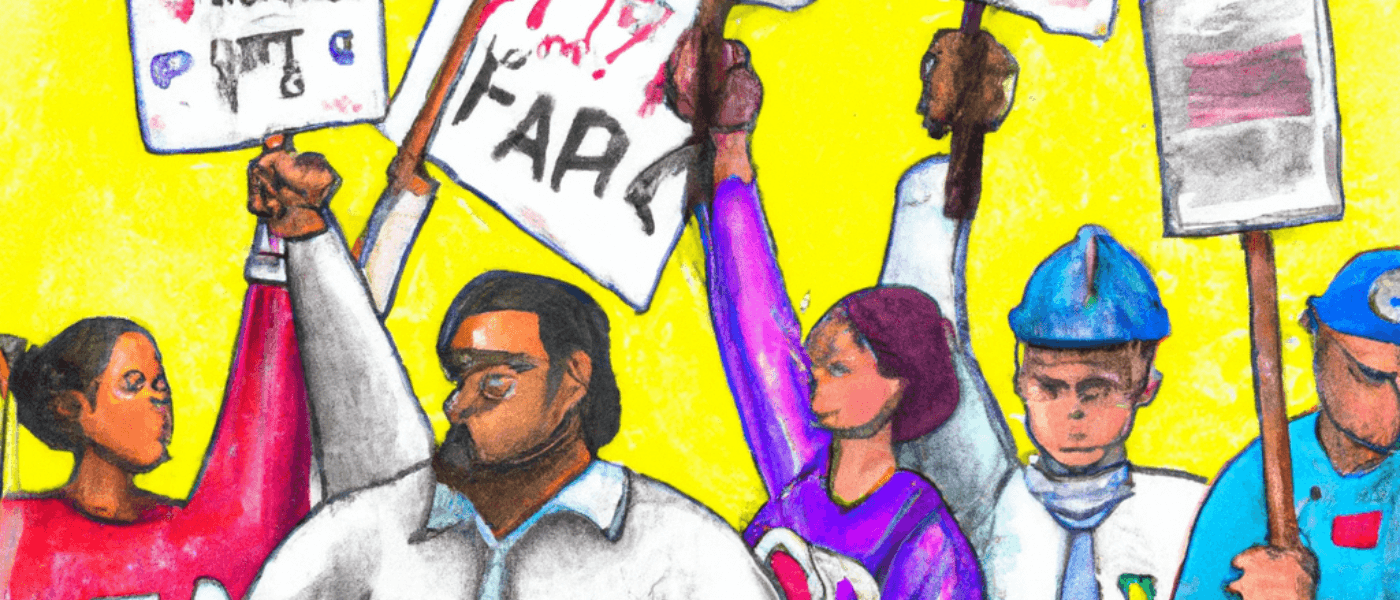
European Solidarity and the Politics of Blame and Reciprocity
Sharon Baute, Assistant Professor of Comparative Social Policy at University of Konstanz
#PGS22 Session: Solidarity In Times Of Crises: Alliances For A Social Europe

Max Heermann, Doctoral Researcher at University of Konstanz
Dirk Leuffen, Professor of International Politics at University of Konstanz
#PGS22 Session: Solidarity In Times Of Crises: Alliances For A Social Europe
In the last decade, the European Union has faced multiple shocks, including the Eurozone, climate, and so-called “refugee” crises, as well as the COVID-19 pandemic and the current energy crisis, dramatically intensified by the war on Ukraine. These crises have challenged the economic, cultural, and political foundations of the European project, giving rise to numerous populist and Eurosceptic challenges. At the same time, new manifestations of European solidarity have emerged. The NextGenerationEU recovery fund but also the joint procurement of vaccines are prominent cases in point. While most experts agree that there are good reasons for promoting European integration, including on social issues, hurdles remain. A major challenge consists of the “constraining dissensus”, exerted by a reluctant public opinion. The pitting of national democracy against the European public interest can be particularly troubling when it comes to the issue of European solidarity.
The good news, however, is that solidarity is not a fixed, unmalleable quantity. Rather it emerges through group dynamics and can be strengthened by engaged political actors. The question remains, how to promote European solidarity among the general public? Building on current social science research, we discuss two key ingredients that contribute to building public support for European solidarity, namely blame attribution and reciprocity.
Blame attribution: Linking causes and solutions
Solidarity builds on and reproduces social ties between donors and recipients. An extensive literature shows that Europeans’ willingness to share risks and resources with others depends on whether they evaluate the receiving side as “deserving”.
In European politics, Eurosceptic populists tend to fuel in-group versus out-group dichotomies, mostly along nationalist lines. Whereas populists in donor countries tend to blame foreign out-groups for their irresponsible and damaging policy decisions, populists in recipient countries regularly blame other out-groups for exerting structural dominance and thereby causing their misfortune. While blatantly simplified, such popular blame attribution can exert huge detrimental effects on European solidarity.
At least three important “blame targets” matter for citizens’ willingness to support European solidarity. The first concerns the attribution of blame to individuals. Unemployment is a typical example where opposing views about the role of individual agency exist. While some consider the unemployed as victims of external circumstances, others believe that unemployment is the result of a lack of individual effort. Research has shown that individuals show less solidarity with the unemployed if they believe that they do not try hard to find a job, and are consequently more supportive of tougher active labour market policies. Depicting the needy as personally responsible for their precariousness is not only detrimental to national but also European solidarity, as it makes people less likely to embrace joint EU-level efforts to reduce inequality (Baute & Pellegata, in press).
Likewise, socially constructed perceptions of government responsibility matter for European solidarity because these affect the perceived deservingness of countries. Our research highlights that Europeans are more willing to support mutual assistance between EU member states in the event of an environmental rather than a social crisis, even though the harm to people’s lives may be comparable (Baute, forthcoming). The key difference here again concerns the attribution of blame – while the environmental shock is arguably beyond human control, governments can be held responsible for economic and financial problems. Such blame attribution narratives are often shamelessly simplified, as paradigmatically highlighted by the social construction of the “Northern Saints” and “Southern Sinners” dichotomy during the Eurozone crisis. In contrast, the pandemic hit Europe as a natural, external shock for which no country could be blamed. Previously inconceivable measures such as the issuing of joint European debt became suddenly possible.
Europeans increasingly hold the EU accountable for a multitude of problems, including economic conditions, healthcare, and social welfare. In the context of the Eurozone crisis, empirical research covering 10 EU countries shows that substantial shares of the population believe that “EU-imposed” austerity policies worsened social and economic problems in weaker member states (Baute & Pellegata, in press). Such beliefs go hand in hand with stronger demands for EU-level welfare policies targeted at vulnerable groups such as the poor, the unemployed, and disadvantaged children.
Blaming the EU for adverse social outcomes thus may not mean a request for “more Europe” as such, but fosters a demand for EU-level initiatives that have an explicit social purpose and raise the profile of the EU as a provider of – instead of a threat to – social protection. The more citizens attribute the causes of social problems such as poverty and unemployment to the EU, the stronger their demand for compensatory policies on the EU level.
Reciprocity: Linking donors and recipients
Reciprocity is another key feature of solidarity. In an insurance system, citizens agree to help each other out, given that everyone contributes their fair share. In the EU, it is states who have contractually—through the European treaties—agreed to contribute to the joint production of common goods. However, to access the fruits of European cooperation, member states bind themselves to commonly agreed norms and values.
Trust in reciprocity is of particular importance in the EU because solidarity at an EU-wide scale may evoke even greater fears of freeriding than domestic redistribution. From this perspective, it makes perfect sense that proposals for European unemployment risk-sharing find more traction among the general public when they are both generous and conditional. In other words, generous unemployment benefits are more likely to be supported if recipients commit themselves to actively look for work, accept job offers, and are sanctioned if they do not.
A key feature of the EU is that it bundles a large number of policy areas. Reciprocal solidarity does not therefore need to be limited to a specific crisis or policy area. The role of benefactor and beneficiary may depend on the problem at hand. Today’s energy crisis, triggered by Russia’s attack on Ukraine, provides a striking example. Germany, traditionally a donor state, now feels the need to ask its fellow EU member states for energy solidarity. This, for the moment rather unpleasant, experience, may strengthen solidarity in the longer run, as it underlines that helping others can pay off for all member states in times of crisis.
In fact, we find that citizens too value reciprocal support across issue areas. If we inform them that a country has previously participated in the admission and relocation of refugees, citizens are more likely to support help during the pandemic. In contrast, if a member state has failed to live up to its European commitments, for example regarding respect for the rule of law, citizens are less willing to support it in times of need. This logic of reciprocity thus also touches on the disturbing issue of democratic backsliding.
Right-wing populists in the East consolidated a model that facilitates economic convergence without a social dimension.
Political narratives, leadership and public support
Solidarity is nothing fixed. Instead, public support for solidarity is conditional on citizens’ perceptions of a particular crisis, as well as their relationship with those in need. Political leaders spin narratives about solidarity, reciprocity, and blame – and these narratives have significant effects on Europeans’ willingness to share risks and resources with others in the EU.
Advocating for European solidarity therefore can take two forms. First, partisan elites can send a strong signal to their political supporters. Citizens often possess little knowledge of complex issues such as EU redistribution and therefore respond favourably to party cues by adopting the position of their preferred party or trusted leader. Second, beyond one’s own camp, well-reasoned arguments can convince the undecided or reluctant moderates who, despite popular claims about rising polarisation, constitute large parts of national constituencies.
It is therefore paramount for politicians to engage in ideational leadership. Those in support of European solidarity must be perseverant in shaping a European discourse that avoids simplified and judgemental narratives about blame. All sides must respect reciprocity and common interests must be stressed, both in donor and recipient states.
While other factors, such as in-group identity and financial costs, also play a role in citizens’ willingness to show European solidarity, these conditions are typically more difficult to change in the short run. By contrast, political leaders can shape public perceptions of blame and reciprocity more easily. By placing these two criteria at the centre of their narratives about European solidarity, they can build public support for a better integrated, and more social, Europe.
Sharon Baute is Assistant Professor of Comparative Social Policy at the Department of Politics and Public Administration at the University of Konstanz. Her research covers topics in social policy, European integration and Euroscepticism, focussing in particular on public attitudes concerning the social dimension of the European Union.
Max Heermann is a doctoral researcher at the Department of Politics and Public Administration, University of Konstanz. He studies European integration, EU policy-making and public opinion regarding international cooperation.
Dirk Leuffen is a Professor of International Politics at the Department of Politics and Public Administration, University of Konstanz. He is a board member of the Cluster of Excellence on the Politics of Inequality. During the past years, he has extensively studied European politics and integration, and continues to search for solutions towards building a stronger and fairer European Union.
This article is published in cooperation with the Green European Journal.
It has been shortened to be accommodated on our blog. For the full version please visit: www.greeneuropeanjournal.eu
The title image was AI-generated by Das Progressive Zentrum, using the DALL-E 2 Image Generator by OpenAI.








